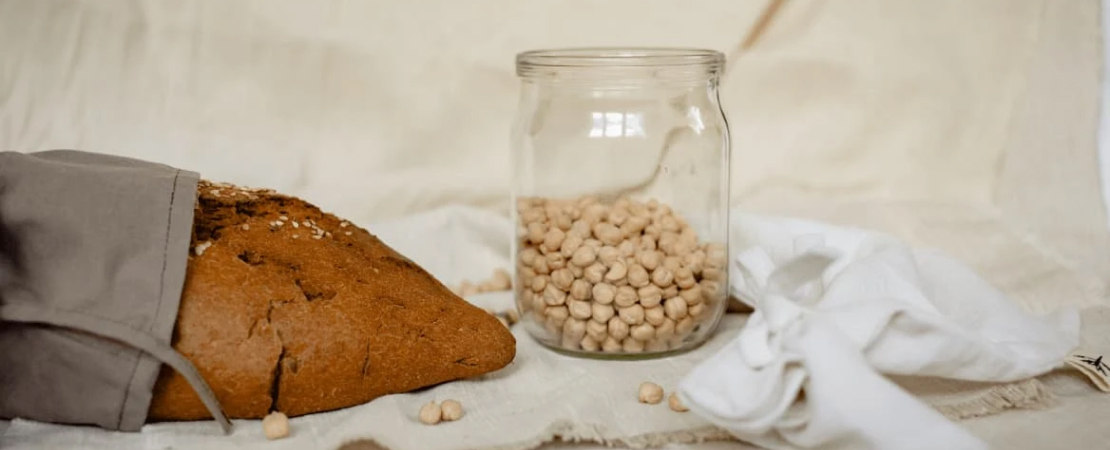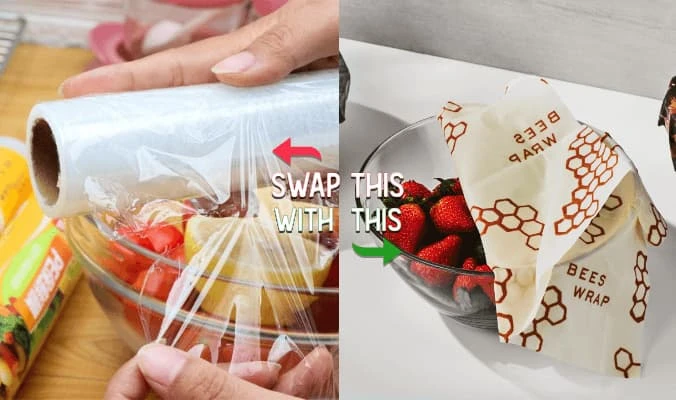6 Simple Kitchen Swaps for A More Sustainable Home
Published on Jan 18, 2021

Like many people, saving money was one of my new year resolutions for 2021.
So was being a little more aware of my environmental footprint.
We’ve recently uncovered some great ways to be more sustainable around the home by making a few simple swaps in your day to day life.
Let’s start in the kitchen.
Why is making sustainable choices important?
Sustainability is generally described as ‘the depletion of natural resources in order to maintain an ecological balance’.
Being more sustainable in an environmental context means minimising our use of non-biodegradable items and living within the resources the planet provides.
Plastic is one of the major culprits here.
Unlike natural materials like paper, cardboard and wood, plastics don’t break down. While some plastics can be recycled, those that can’t end up landfill or get burned, leaking CO2 into the atmosphere and contributing to climate change.
6 Sustainable Alternatives to Common Kitchen Stuff

1. Beeswax wraps
We go through a lot of clingwrap at my house – whether it’s covering leftovers, wrapping sandwiches or keeping snacks fresh, plastic wrap makes a regular appearance on my shopping list.
Beeswax wraps are growing in popularity and it’s not hard to see why. In basic terms, they’re just like reusable plastic wrap. They come in a variety of sizes and some really funky patterns. If you look after them, they will last about a year.

2. Handwash
You’ll need to do your research here. Sustainability is important but so is keeping your hands healthy. Look for bottles that use less plastic, or none at all. And remember that good quality, effective handwash doesn’t need to be laden with chemicals.
At the very least, invest in refill bottles instead of buying a single new bottle every time you run out.

3. Microfibre cloth
There are eco-friendly options available but paper towels don’t recycle well because they disintegrate into pulp, which sticks to other items and can’t be separated.
If you think about it, they do seem like a waste, especially when most jobs around the home we use them for could be done with a sponge or microfibre cloth. You can even use old clothing or towels as makeshift rags.

4. Glass food containers
Most kitchen drawers are stuffed with myriad plastic containers (and hopefully their lids). Most plastic contains BPA, which evidence shows can interfere with the production and function of natural hormones such as estrogen and testosterone.
Invest in glass containers or mason jars to store your pantry’s food, reusable food bags or use your new beeswax wraps instead.

5. Reusable Bottles
Keep cups and stainless-steel drink bottles are big business at the moment. Swapping from single use to reusable options for your daily drinks will make a great difference.
This will minimise your waste significantly and as an added bonus, most bottle or cup options will keep your favourite beverage hot (or cold) for you!

6. Lemon, Bi-carb Soda, and Vinegar
Limiting how many cleaning products we have by using natural cleaners instead is not only healthier, but it can also save you money, too.
It is better for the environment, reducing how much plastic packaging we use and how many chemicals we are spraying into the air.
Most home tasks can be done by using the magic three; that’s lemon, bi-carb soda and vinegar. Want to know more about natural cleaning? Learn how to get your kit started here.
These are just some small steps you can make your kitchen more sustainable. The world’s environmental issues can feel overwhelming at times but change can start at home – every little bit counts.




